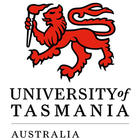Master of Agriculture and Food Sciences (Specialisation) – Sustainable Agricultural Systems
Master of Agriculture and Food Sciences (Specialisation) – Sustainable Agricultural Systems
The Master of Agriculture and Food Science (Specialisation) course aims to provide graduates with advanced contemporary knowledge in agricultural and food sciences. Students will develop a capacity for independent research and problem-solving that can lead to a higher research degree or a career in agriculture and food-related industries. They will…
Categories
COURSE DESCRIPTION
The Master of Agriculture and Food Science (Specialisation) course aims to provide graduates with advanced contemporary knowledge in agricultural and food sciences. Students will develop a capacity for independent research and problem-solving that can lead to a higher research degree or a career in agriculture and food-related industries. They will be able to apply their skills and knowledge to address contemporary challenges and support sustainable agricultural growth and innovative food production in Tasmania.
The specialised skills and knowledge developed through this course will enable graduates to critically evaluate data and promote sustainable, ethical and safe practices in the industries they choose to work in. Graduates will have the foundation to contribute towards the University’s strategic direction of improving processes and sustainability outcomes in Tasmania’s blue and green economies.
Learning Outcomes: 1 Address complex problems in agricultural and food systems by critically analysing recent developments in theory and practice from the core sciences, business and agriculture. 2 Use scientific skills and approaches to advance disciplinary knowledge and inform decision making in agriculture and food workplace contexts. 3 Facilitate adoption of innovative, sustainable and profitable practices in agriculture and food systems by evaluating and communicating relevant knowledge to diverse stakeholders. 4 Design and conduct independent investigations using appropriate methodologies and processes specific to the discipline. 5 Advance the adoption of ethical, responsible, respectful and safe work practices that adhere to relevant regulatory and professional frameworks.
Course structure: The Master of Agriculture and Food Sciences is a two-year course which students can enter with a cognate or non-cognate degree. The course comprises of: Four core units worth a total of 50 credit points, to be completed as part of the transition semester A specialisation comprising of six units, worth 75 credit points. Students can choose one of three specialisations: Sustainable Agricultural Systems Crop Science and Plant Health Food Microbiology.
Sustainable Agricultural Systems
This specialisation includes six units (worth 75 credit points) that are focussed on sustainable practices in livestock farming and landscapes.
Select six units from:
- KLA533 Agricultural Technology and Innovation
- KLA534 Agricultural Landscape systems
- KLA535 Farming Systems
- KLA608 Crop Protection and Biosecurity
- KLA613 Soil Science
- KLA614 Animal Science
- KLA615 Pasture and Animal Science
REQUIREMENTS
A Bachelor degree in a science related area, and some background (e.g. minor sequence) in sciences relevant to one of the specialisations, completed to a standard of achievement that is deemed acceptable by the College.
Admission to most postgraduate coursework courses at the University of Tasmania require qualifications equivalent to an Australian bachelor degree.
IELTS (Academic) – 6.0 (no individual band less than 6.0)
TOEFL (iBT) 72 (no skill below: Reading 16; Listening 16; Speaking 18; Writing 22)
PTE Academic 50 with no score lower than 50
UTAS Access-English Level 7 – 60% (no individual score less than 60%)
Cambridge CAE (Certificate of Advanced English) – B Grade
Cambridge CPE (Certificate of Proficiency in English) – C Grade
Cambridge BEC (Business English Certificate) Higher – C Grade
EDUCATIONAL INSTITUTION
The University of Tasmania was officially founded on 1st January 1890 and is located at Sandy Bay, Tasmania. In addition to the main campus at Sandy Bay, it also operates out of the Newnham Campus and the Cradle Coast Campus. The most popular courses offered are the environmental studies that include wilderness management, marine sciences and indigenous studies in Tasmanian literature. Other unconventional courses include agriculture development, studies on the community and population and ocean study programs. The university also comprises of a Music Conservatorium, Art school and a School of Clinical studies.




